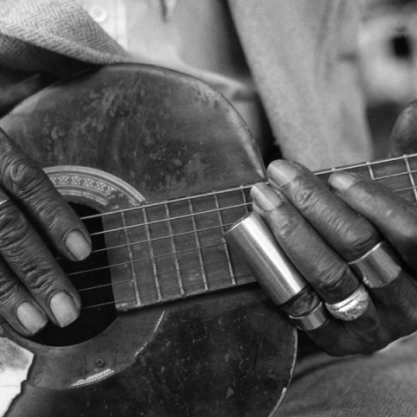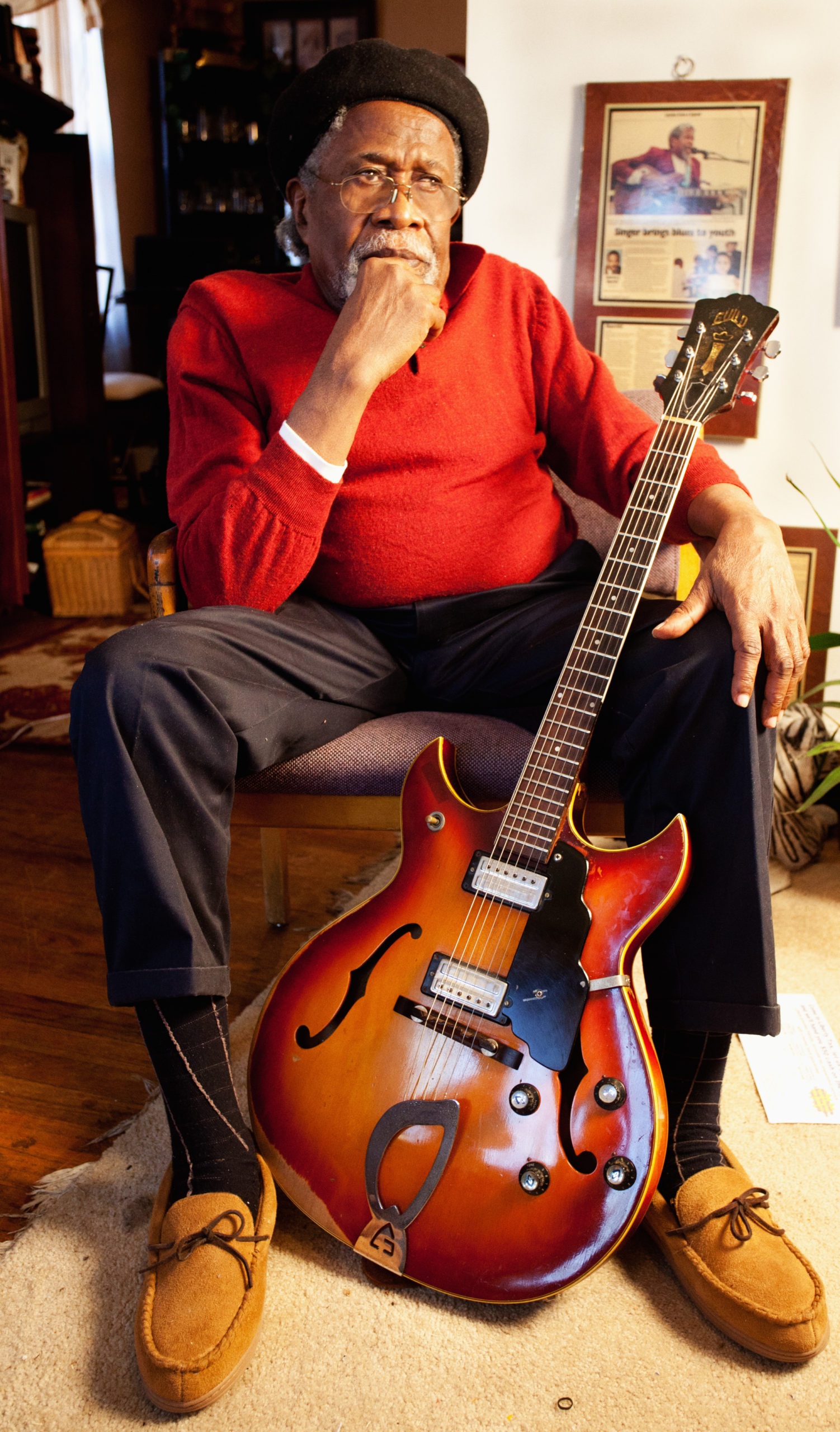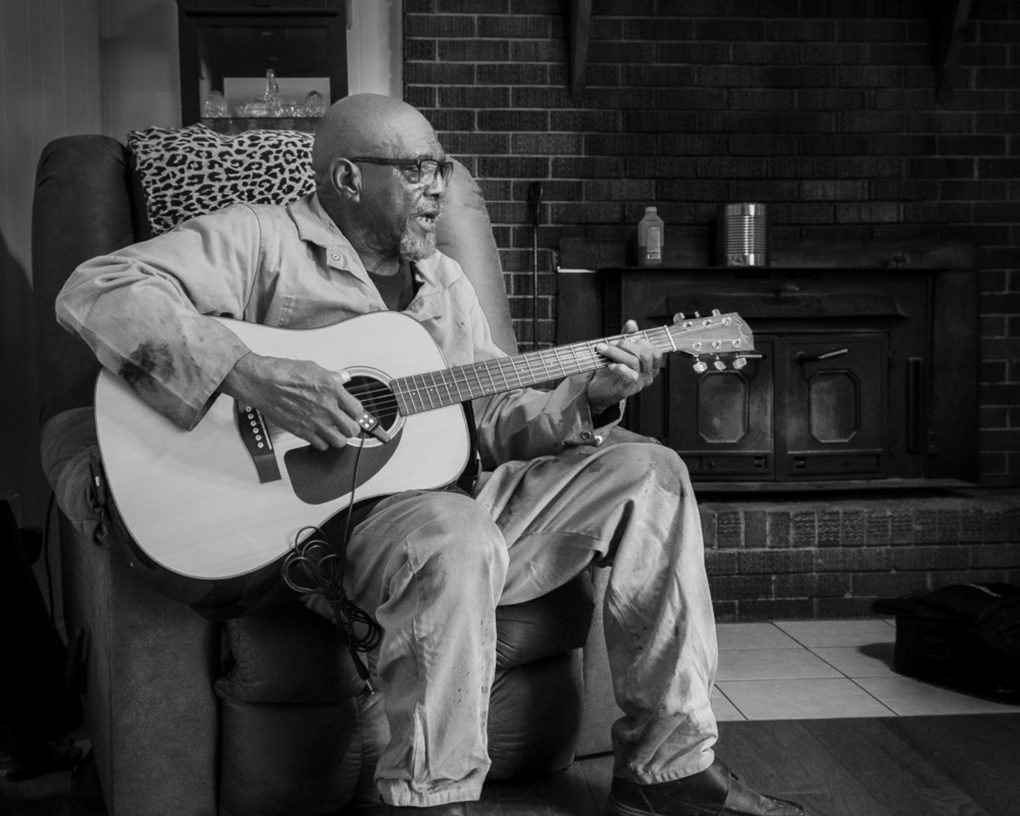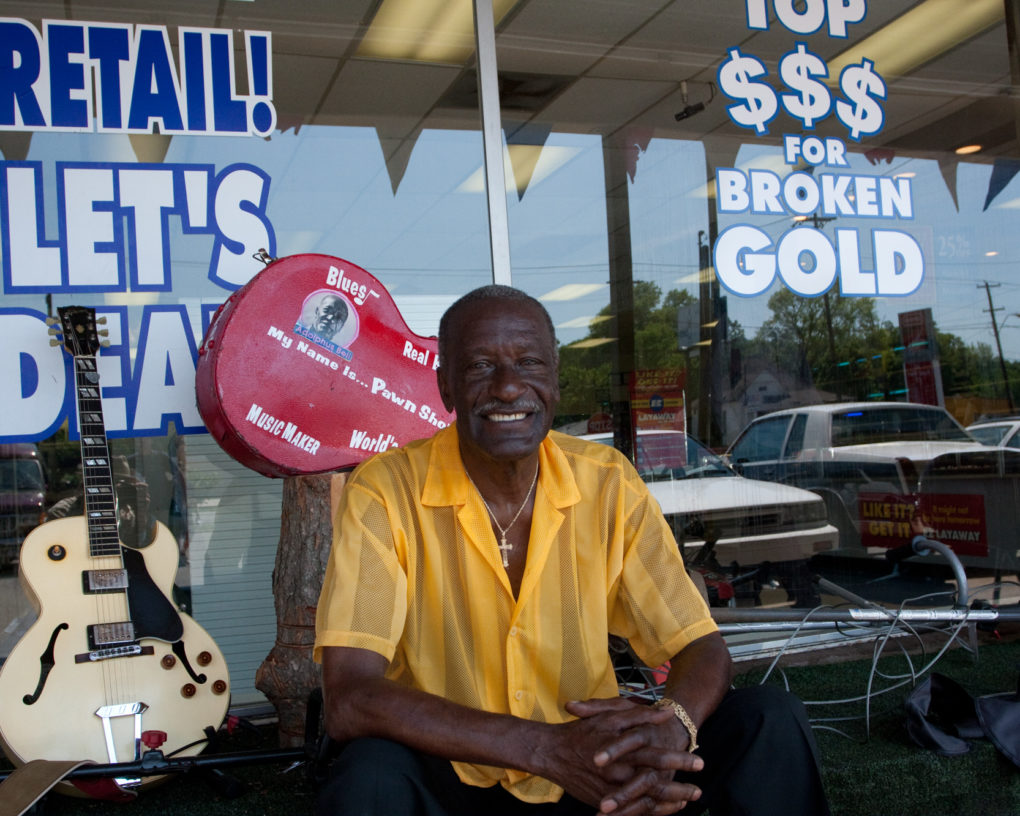Impossible Choices in the Face of Inflation
How do you see inflation affecting people right now?
The average Social Security payment is $1,658. So on average, older Americans (on Social Security) are living on less than $2,000 a month. Last year, the overall cost of things was raised by 7.9 percent. Just thinking about being a middle-class or an upper-class person, prices have increased for us and it’s hard to pay for gas or to pay for groceries, things like that. So if someone is living on less than $2,000 a month the increase of just those basic daily necessities starts to eat into that cost.*
*It is worth noting here that in 2021, the median monthly income of Music Maker artists we surveyed was $929.
There are places all across the US where just the cost of rent has increased 30 percent. So if you’re paying $1,500 for a one-bedroom apartment, that leaves you $200 to pay for all of your bills to feed yourself, to get around, and things like that. A lot of our artists are having trouble, just literally making ends meet.
Are there any specific artists who have been significantly affected?
Drink Small and his wife, they’re both on a fixed income. But when things come up, such as a house repair that’s a couple of hundred dollars, and they don’t have that, it really becomes, “Oh, well do I fix this repair in my house that could really be threatening to the foundation of the house? Or do I pay for groceries?”
I have spoken to other artists that have told me, “Oh, well, I have to decide this month. Am I going to pay my bills or am I going to pay my mortgage?” So of course that mortgage is going to come first, and then you figure out how to fill in the gaps.
Another is the artist, Clarence {“Bluesman”} Davis. In speaking with him, his daughter and his grandchildren are now living with him and he’s had a recent injury that limits any amount of money he could have been making. So now you have additional household members, a limited income, and you’re going to have to figure out, “Do I put food on the table or do I pay the bills to keep the lights on?”
Where do you see things going from here? After an artist has missed a bill, what ends up happening the following month?
The poverty rate among people that are retired or are older Americans is the highest among any demographic. What happens, it’s almost like a snowball effect. If you miss one month and say, that bill is $300, then the next month say, you’re able to pay $50 towards it, well, that still leaves a $250 balance that is going to be added on top of that next month, which is another $300.
And right now, because the economy is affecting everybody, a lot of the resources that are in the community, they’re all strapped for cash. What that means is funding is very limited. So even if they could go to their local social services to get that assistance, that assistance may not even be there right now.
So, it just continues to be this snowball effect. One of the unfortunate things is that the moratorium on evictions has been lifted. So there are a lot of people that are being evicted from their homes if they have a lease. Or if they’re renting, and then that person then moves towards homelessness, that’s a completely different issue that we have to deal with.
Where does Music Maker, both your role in Music Maker and in general as an organization, come into play?
It’s really great, the relationship that Music Maker has built with our artists. When we have artists that are in these situations, I get a phone call. I get a few phone calls a week from someone that’s like, “Hey, this is what’s going on.” And because of the funding that we’re able to fundraise or get through grants, we’re able to help these artists when they get in those situations.
Again, as I was talking about that snowball effect, if you don’t take care of the problem, it just starts to compound. But if Music Maker can interject and say, “Okay, if this bill is $300, you need some assistance with that. Let’s see if we can take care of that.” That way it doesn’t snowball, and it doesn’t put that artist behind the stress that comes with that.
I’m there to say, “Well, let’s look if there are any other areas. Are you taking medications where there’s a high copay? Can we get some community assistance with that? Can we get some community assistance with some of the bills that you have in your house?”
I just think overall, our artists are very grateful to have Music Maker. We work with a population that is very prideful. And they should be! They’ve accomplished a lot throughout their lifetime. The legacy that they’re leaving behind, it’s just that: it’s a legacy that’s going be here forever.
And so I think to have worked your entire life to build this legacy, and then to have to ask for help—even if it’s paying a $100 bill or putting gas in your tank so that your house can have heat—I think sometimes it can almost be hurtful for some of our artists to have to ask us for that. But I think that they trust Music Maker enough and they trust me enough to know, “I can go to them and they have my back and they support me and they know that it doesn’t make me less of a person because I’m asking.”
So I think the relationship that we have built with our artists is something that’s absolutely beautiful.

Get involved
& give back
The Music Maker Foundation is a 501(c)(3) nonprofit organization that depends on thousands of supporters. Together, we work to meet the day-to-day needs of the artists who create traditional American music, ensure their voices are heard, and give all people access to our nation’s hidden musical treasures. Please contribute or shop our store today.



